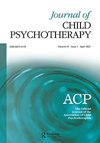‘Something more than one phase of treatment’: Sunaya, an adopted adolescent patient who asked to return to therapy
IF 0.8
Q4 PSYCHOLOGY, CLINICAL
引用次数: 0
Abstract
ABSTRACT This paper discusses my work with Sunaya, an adopted adolescent girl who asked to return for a second phase of therapy. This happened several months after her first phase of treatment had abruptly been brought to an end, due to unsolicited organisational changes. Sunaya’s search for identity was severely compromised by her having been abandoned at birth by her biological parents to a foreign orphanage, and subsequently being adopted at five months of age. In this second phase of therapy, I was struck by the extent to which Sunaya was now so suddenly driven to make sense of her origins in open discussion, managing to process and integrate the biological and adopted parts of herself in a way which had not seemed possible in our earlier work. This enabled her to make considered decisions about the next stages of her life post 18. I suggest that the original ending of Sunaya’s therapy, followed by our therapeutic reunion, represented in her mind a reunion with her biological parents; within the therapy Sunaya’s curiosity and ambivalence about such a reunion could be safely worked through. I link Sunaya’s request for ‘something more’ than one phase of treatment with Stern’s ideas about offering ‘something more’ to some of the most deprived patients in therapy. I further suggest that Henry’s ideas about some fostered and adopted children being ‘doubly deprived’ helped me understand Sunaya’s need for a ‘double dose’ of therapy, in order to redress how she had internalised multiple experiences of deprivation. This further helps us understand the need for looked after children to develop stronger attachments in multiple contexts.“不仅仅是一个阶段的治疗”:Sunaya,一个被收养的青少年患者,她要求重新接受治疗
摘要本文讨论了我与被收养的少女Sunaya的合作,她要求回国接受第二阶段的治疗。这是在她的第一阶段治疗突然结束几个月后发生的,原因是未经请求的组织变革。Sunaya在出生时被亲生父母遗弃在一家外国孤儿院,随后在五个月大时被收养,这严重影响了她对身份的寻找。在治疗的第二阶段,我被苏娜雅突然被驱使在公开讨论中理解自己的起源的程度所震惊,她设法以我们早期工作中似乎不可能的方式处理和整合自己的生物学和收养部分。这使她能够对18岁后的下一个人生阶段做出深思熟虑的决定。我认为,苏娜雅治疗的最初结局,以及我们在治疗上的团聚,在她心目中代表着与亲生父母的团聚;在治疗中,苏娜雅对这样一次重聚的好奇心和矛盾心理可以安全地解决。我将Sunaya对“不止一个阶段的治疗”的要求与Stern关于在治疗中为一些最贫困的患者提供“更多”的想法联系起来。我进一步建议,亨利关于一些被寄养和收养的孩子被“双重剥夺”的想法帮助我理解了Sunaya需要“双重剂量”的治疗,以纠正她如何内化多重剥夺经历。这进一步有助于我们理解被照顾的孩子在多种情况下培养更强依恋的必要性。
本文章由计算机程序翻译,如有差异,请以英文原文为准。
求助全文
约1分钟内获得全文
求助全文
来源期刊

JOURNAL OF CHILD PSYCHOTHERAPY
PSYCHOLOGY, CLINICAL-
CiteScore
0.70
自引率
50.00%
发文量
46
期刊介绍:
The Journal of Child Psychotherapy is the official journal of the Association of Child Psychotherapists, first published in 1963. It is an essential publication for all those with an interest in the theory and practice of psychoanalytic psychotherapy and work with infants, children, adolescents and their parents where there are emotional and psychological problems. The journal also deals with the applications of such theory and practice in other settings or fields The Journal is concerned with a wide spectrum of emotional and behavioural disorders. These range from the more severe conditions of autism, anorexia, depression and the traumas of emotional, physical and sexual abuse to problems such as bed wetting and soiling, eating difficulties and sleep disturbance.
 求助内容:
求助内容: 应助结果提醒方式:
应助结果提醒方式:


